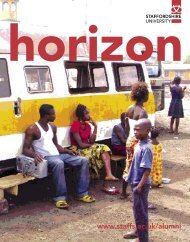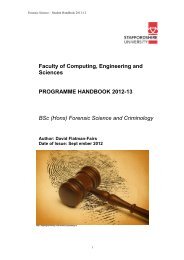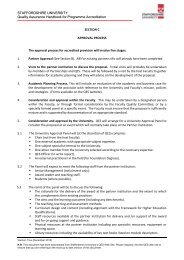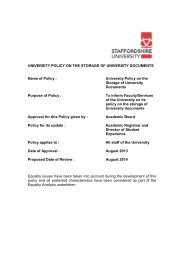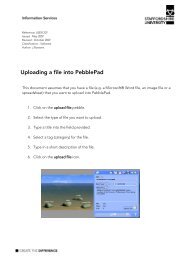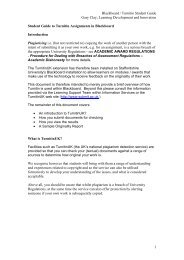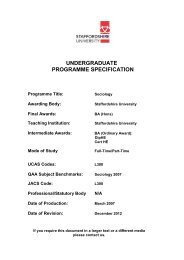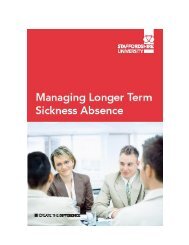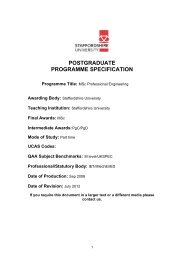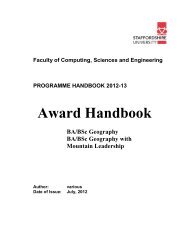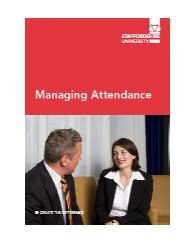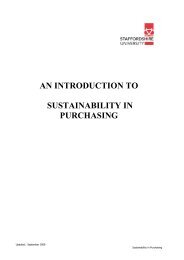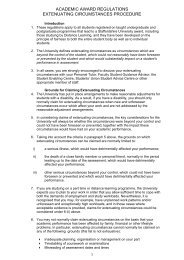DICE Project Final Report Resource Discovery Tools Evaluation and ...
DICE Project Final Report Resource Discovery Tools Evaluation and ...
DICE Project Final Report Resource Discovery Tools Evaluation and ...
Create successful ePaper yourself
Turn your PDF publications into a flip-book with our unique Google optimized e-Paper software.
<strong>DICE</strong> <strong>Final</strong> <strong>Report</strong><br />
I have found with many JISC services that although the search facility may offer sophisticated<br />
searching, there’s often not much in my subject area or the metadata is inadequate to find it. Although<br />
st<strong>and</strong>ard Google has its weaknesses, it is still largely more successful.<br />
ACADEM3: No. Generally, my role has little need for academic searches.<br />
STU5: No, I usually just use Google, sometimes its fine but other times I end up trawling through<br />
information.<br />
2. **Do you think would find such services useful in your learning?<br />
MAN1: Very - more targeted returns than from general search engines like yahoogle<br />
MAN2: Yes<br />
EDTECH1: possibly, can see its benefits from a teaching perspective<br />
ACADEM1: To a point <strong>and</strong> then availability <strong>and</strong> location of the identified resource proves to be a<br />
barrier.<br />
STU1: A RD tool that works to a similar st<strong>and</strong>ard as PubMed but with a more general data set would be<br />
very useful to me <strong>and</strong> other learners. The links must be available to web resources for it to be of any<br />
real use to learners, even if it is just a brief description but preferably an abstract as it is helpful to be<br />
able to asses the relevance <strong>and</strong> usefulness before searching for a book or ordering an article from<br />
document delivery.<br />
STU2: Yes, such services are definitely useful as they either give the full text or at least give the place<br />
where I can get a bit more information<br />
ACADEM2: Yes - up to a point. Without the ability to search for more than one term or for a phrase the<br />
tools are limited (for me anyway).<br />
STU3: Definitely YES. I believe RD services are very useful when want to know what others have done<br />
on a particular subject <strong>and</strong> to know the opinion of those regarded as authority in your field about the<br />
subject.<br />
STU4: Yes these services are quite useful for academic usage <strong>and</strong> e-learning purposes. With this<br />
technology students are capable of gaining lots of e-resources from several online books, sites <strong>and</strong><br />
journals etc.<br />
EDTECH2: Not really, sometimes I find them a bit restrictive, I find a more general web search has<br />
produced some interesting results following unlikely leads.<br />
EDTECH3: Yes, I think results from such services might be more directly relevant - sometimes web<br />
searches throw up a lot of irrelevant stuff.<br />
EDTECH4: My role is in ILT, in helping staff to locate <strong>and</strong> use e-resources in their teaching <strong>and</strong> for use<br />
by their learners. I don’t have a learning role, other than my own CPD – the services are definitely<br />
useful for this because they help me to underst<strong>and</strong> developments in e-learning <strong>and</strong> resource discovery.<br />
MAN3: Yes to some degree. Some search results looked interesting <strong>and</strong> different to searches found<br />
from other more typical routes. Clearly the results were more ‘scholarly’ than those found via Google<br />
<strong>and</strong> I didn’t always find the results from Google scholar that useful with the search terms I was using at<br />
least. Problem will always be bringing it all together (which I’m aware d+ this is trying to do!) as can<br />
easily forget about these extra services <strong>and</strong> just use Google.<br />
ACADEM3: I think they will become more useful to me over time as comment on <strong>and</strong> assessment of e-<br />
learning material becomes more widespread.<br />
STU5: Yes, it’s really helpful to have specific searches. Google sometimes pulls up just too much<br />
information.<br />
56



